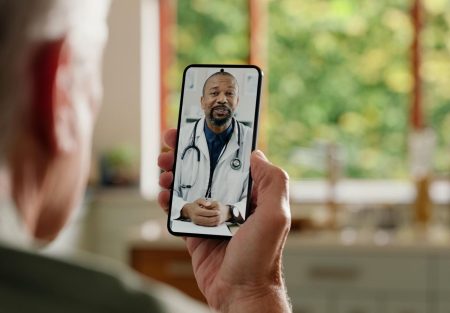Alexandr Khomich, President & CEO at Andersen.
The world is becoming increasingly digital. Many people work remotely. They shop, bank and even date online. Information is now just a few clicks away, making it tempting to seek instant medical advice from Google or conversational AI.
While these technologies are convenient, they also come with risks, as is typical with any new technology. People should use them carefully, and leaders in the technology sector should, likewise, be aware of these risks when developing healthtech solutions.
Why People Are Searching For Symptoms
The rise of the virtual world has coincided with an increase in social isolation. The Covid-19 pandemic only exacerbated this trend: During this period, social isolation increased by 6.7 (6.3-7.0) percentage points.
Amid this social isolation, people are relying on technology like search engines for medical advice from the internet rather than reaching a doctor. This trend has also been brought about by advances in AI, the ubiquity of smart devices, the healthcare workforce crisis, the trend of healthcare consumerization and the prevalence of chronic diseases. Likewise, life obstacles and a lack of health insurance have led people to seek health advice online.
According to a 2019 survey of 2,000 Americans, nearly 43% admitted to incorrectly diagnosing themselves after consulting the internet. Furthermore, 74% of respondents said that search results heightened their anxiety. While it’s common to research one’s symptoms online, these are a couple of the pitfalls to understand.
Another one is cyberchondria, characterized by a pathologically excessive desire to seek information about health online and often treating everyday bodily phenomena as dire. Also, the danger of sources with low medical credibility was highlighted by the quote often attributed to Mark Twain: “Be careful about reading health books. You may die of a misprint.”
The Role Of Conversational AI And Medical Chatbots
Over the last several years, the technology industry has responded to the need for immediate and easy-to-access medical information.
There’s a lot of buzz about how conversational AI can improve healthcare access. However, real-world results are still mixed. A recent study suggests that ChatGPT can diagnose emergency department patients at least as well as human doctors. However, the sample size (30 patients) was too small to draw meaningful conclusions.
U.S. ER physician Josh Tamayo-Sarver also provided ChatGPT with case summaries of 35 to 40 patients and prompted it to diagnose them. The diagnostic accuracy turned out to be around 50%. The chat missed some life-threatening conditions, such as ectopic pregnancy, simply because it was unable to ask additional questions to determine that it was dealing with a woman. The entire experiment showed that ChatGPT may only perform well on patients with typical disease presentations, which is not always the case in real life.
Medical chatbots are also gaining popularity. By 2028, the global healthcare chatbot market is expected to reach $431.47 million, compared to $184.60 million in 2021. Consider that approximately 20% of the population in Rwanda was using Babyl in 2021, a version of the Babylon AI chatbot that significantly improved access to medical care.
Conversational AI and medical chatbots, however, raise questions about the role of human doctors. An article in JAMA Internal Medicine found that ChatGPT was able to provide more accurate and empathetic answers to patient questions than certified medical professionals on internet forums. However, the question remains: Is empathy the same as the quality of care?
Research also shows that patients find chatbots most helpful when they exhibit human-like compassion. Companies are responding to patients’ need for empathy by engineering products focused on emotional bonds, such as UneeQ Creator or QliqSOFT’s Quincy chatbot solution. Nonetheless, bad experiences can deter people. Multi-modal care that preserves human relationships, along with education on AI benefits, can help ease the adoption of digital health tools.
Currently, virtual-first healthcare is not yet a working model, as evidenced by Babylon Health. This pioneering chatbot that provided millions with convenient care went bankrupt. Thus, an innovative idea alone does not guarantee a sustainable business.
Additionally, the availability of such solutions is a concern. According to Market.Us research, healthcare chatbots are currently widespread in developed countries, with North America holding the largest market share (60%). The Asia-Pacific region is the fastest-growing market for these solutions. However, medical professionals in emerging countries are often hesitant to adopt them, leading to disparities in AI-driven care across continents.
Viable Digital Health Alternatives
As it is currently not possible to have digital-first primary care, there is a question of viable digital health alternatives. The solution lies in redirecting patients toward proven innovations while retaining human, cultural and ethical integrity.
A viable option could be telemedicine—or having video visits with qualified medical providers—which has proven its effectiveness in screening, diagnosis, management, treatment and long-term monitoring of various chronic diseases, according to the WHO. The affordability of telemedicine solutions is also improving. For example, the U.S. retailer Costco has recently announced a partnership with the direct-to-consumer healthcare marketplace Sesame, offering medical online checkups starting from $29.
For those who need better management of chronic conditions, a viable alternative could be care support digital solutions like Livongo or Biogen’s Aby/Cleo. They can provide health education, strategies for self-management of symptoms as well as some elements of patient monitoring and analytics.
Rather than vilify or glorify Googling symptoms and chatbots, we must acknowledge technology’s role in modern self-care while mitigating risks wisely. Patient encounters with medical providers still rule, even though in a technically new fashion like telemedicine. Medical chatbots (even the most advanced ones) proved useful during the pandemic but still cannot replace doctors.
Digital care support platforms that track health metrics and provide personalized health management suggestions are growing in popularity and can be helpful solutions in some cases. However, technology is advancing rapidly, and the augmentation of healthcare seems unstoppable. Ultimately, though, human expertise and compassion remain paramount because healthcare is about care.
Forbes Technology Council is an invitation-only community for world-class CIOs, CTOs and technology executives. Do I qualify?
Read the full article here









